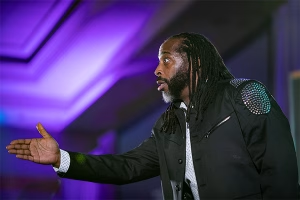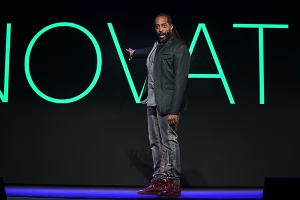The stage is seductive. It offers lights that flatter and applause that tempts. But for all its glory, the stage can also be a thief. If you’re not careful, it can steal your voice, dilute your purpose, and trade your authenticity for applause. That’s why the real art of public speaking—especially at the corporate level—isn’t just about owning the stage. It’s about doing so without losing yourself.
I’ve seen it happen too often. Speakers who climb the ranks, win the bookings, and somewhere along the way begin performing personas instead of presence. They speak not from their truth, but from what they think the audience wants to hear. They edit their soul for palatability. They cut their voice to fit the mold. And in doing so, they lose the very edge that made them magnetic in the first place. But here’s the secret: the stage doesn’t need a version of you. It needs all of you. Your flaws, your passion, your quirks, your quiet wisdom. The things that make you human are the things that make you powerful.
As a Poetic Voice and Grammy-nominated spoken word artist, I’ve performed on some of the world’s biggest stages—from corporate conventions to concert halls. But I never show up as “Speaker Sekou.” I show up as me. Fully. Fearlessly. Because that’s what people connect to. That’s what leaders remember. That’s what transformation requires. You don’t have to wear a different mask to lead. You don’t have to shrink your spirit to sound professional. You can be both powerful and personal. Commanding and compassionate. Strategic and soulful. That’s not contradiction. That’s balance.
Owning the stage starts with understanding that your story is your superpower. Your voice—your actual voice, the one that cracks with emotion and rises with conviction—is your greatest asset. The best corporate keynote speakers don’t just master technique. They master self. They know that the most compelling message is one that’s spoken from a place of truth, not performance. That’s why the strongest delivery comes from alignment, not effort. When your message, your voice, and your identity are in sync, you don’t need to fight for presence. You become presence.
So the next time you prepare for a stage—whether it’s a conference hall, a client meeting, or a virtual platform—don’t ask, “How do I impress them?” Ask, “How do I bring my whole self into this space?” Because authenticity is not a liability. It’s a leadership tool. It’s not what makes you different—it’s what makes you necessary. Own the stage, yes. But do it by being so grounded in your purpose, so rooted in your story, that no spotlight can outshine the light you already carry.


